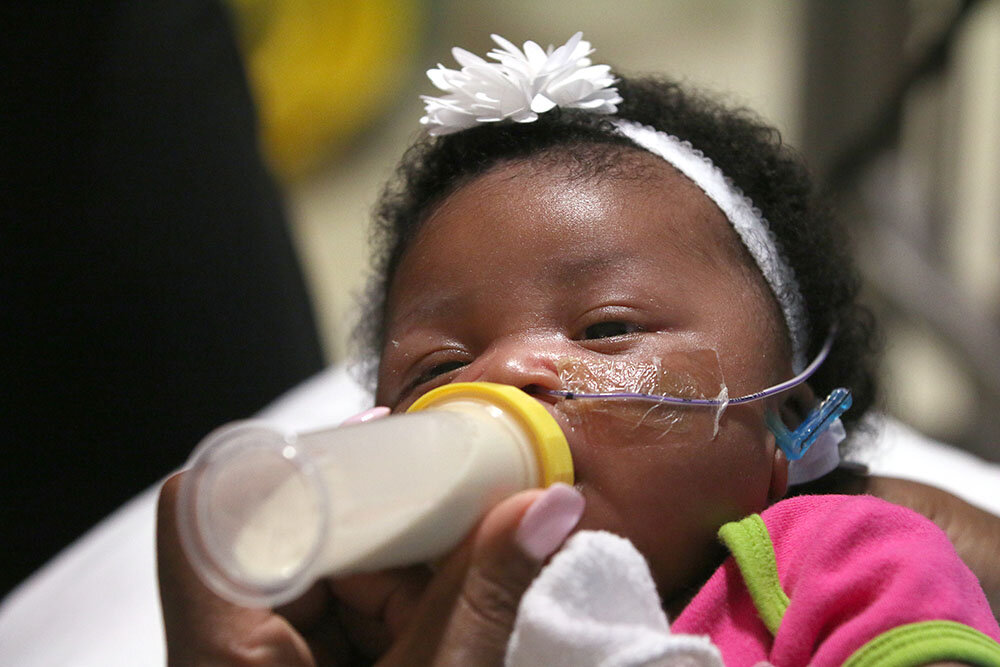Using new therapies to teach critical skills
September 05, 2018
Emaree Haskell drinks from her bottle as she is hooked up to a neonatal feeding system to try to help stimulate her to eat. Photo by Sarah Pack
Eager expectant parents often hear that newborns eat, dirty their diapers and sleep — and not much else for several months. But what should come naturally – eating – can be difficult, if not impossible, for premature babies or babies who suffer a lack of oxygen to the brain during birth. Their muscles are weak, and they have difficulty coordinating the pattern of “suck, swallow, breathe” to successfully eat.
Some of these babies end up going home with a gastrostomy tube — a surgically implanted port that sends food directly to their stomachs. Although the tube does allow them to get the nutrition they need to grow, it requires surgery and, of course, extra care by the parents. In addition, babies who have feeding difficulties are more likely to have language delays later on.
A group of researchers and doctors at MUSC want to see if they can help babies develop proper oral feeding skills before leaving the hospital so they can avoid the G-tube.
They’ve been working on a small preliminary study to see if stimulating a baby’s vagus nerve while the baby actively sucks on a bottle will help rebuild the motor pathway that enables the baby to eat. An electrode attached to the baby’s ear sends a mild pulse that the vagus nerve picks up. The vagus nerve runs from the brain to the colon and provides sensory information from the ear and throat; it’s also responsible for motor functions in the neck related to swallowing and speaking, among multiple other functions throughout the body.

